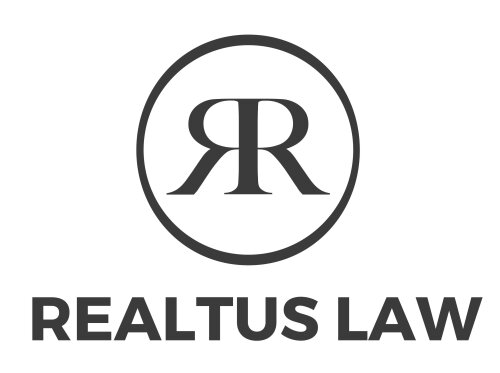Best Government Contract Lawyers in Canada
Share your needs with us, get contacted by law firms.
Free. Takes 2 min.
Or refine your search by selecting a city:
List of the best lawyers in Canada
About Government Contract Law in Canada
Government contract law in Canada refers to the legal principles governing agreements made between the government and private sector entities. These contracts can involve various sectors such as construction, technology, defense, and services. The legal framework ensures fair and transparent dealings, outlines obligations and rights of involved parties, and provides mechanisms to deal with disputes or breaches. The procurement processes at the federal, provincial, and municipal levels are governed by specific regulations and policies, aimed at promoting integrity and fairness.
Why You May Need a Lawyer
Individuals or businesses may require legal assistance in several situations involving government contracts. Common reasons include:
- Understanding and navigating complex procurement processes.
- Drafting or reviewing contract terms to ensure compliance with laws and regulations.
- Negotiating contract disputes or addressing breaches in agreements.
- Ensuring competitive and fair bidding processes are adhered to.
- Responding to audits or investigations by government agencies.
- Seeking advice on intellectual property rights or confidentiality issues.
Local Laws Overview
Government contracts in Canada are subject to a multifaceted legal framework that varies depending on the jurisdiction (federal, provincial, or municipal). Key aspects include:
- Federal Legislation: The Financial Administration Act, the Government Contracts Regulations, and the Trade Agreements Act are pivotal.
- Provincial Legislation: Provinces have their procurement policies that align with federal guidelines but cater to local needs.
- Municipal Regulations: Cities and towns may have their own rules governing local procurement projects.
- Trade Agreements: Under agreements like the Canadian Free Trade Agreement (CFTA) and the Comprehensive Economic and Trade Agreement (CETA), certain procurement practices are mandated to encourage fair trade.
- Ethical Guidelines: All levels of government emphasize ethical conduct and transparency in their procurement policies.
Frequently Asked Questions
What is a government contract?
A government contract is a legally binding agreement between a private party and the government for the procurement of goods, services, or works.
How can my business bid on government contracts?
Businesses can participate in government tenders by responding to requests for proposals (RFPs) issued by governmental agencies, accessible through platforms like Buyandsell.gc.ca for federal opportunities.
What are the typical requirements for government contract proposals?
Requirements often include a business plan, proof of past performance, financial statements, and compliance with specific procurement standards.
Can a government contract be challenged or contested?
Yes, if a party believes that the procurement process was unfair, they may file a complaint with the relevant administrative body or seek legal redress.
What is the role of the Competition Bureau in government contracts?
The Competition Bureau ensures fair competition and investigates instances of bid-rigging or collusion in government procurement.
How is intellectual property handled in government contracts?
Intellectual property rights in government contracts depend on the terms set out in the contract. The government may require certain usage rights for the duration of the contract or beyond.
Are government contracts subject to public access and transparency laws?
Yes, government contract information is often subject to transparency laws, and certain details may be disclosed under the Access to Information Act.
What happens if a government contract is breached?
Breaches can lead to disputes which may be resolved through negotiation, mediation, arbitration, or legal proceedings, depending on the contract terms and the severity of the breach.
Who oversees federal government contracts?
The Treasury Board Secretariat generally oversees federal procurement policies, while individual departments manage specific contracts.
What are the common risks associated with government contracts?
Risks include non-compliance with regulations, financial penalties, project delays, and challenges in meeting performance standards.
Additional Resources
For those seeking further information, helpful resources include:
- The Government of Canada's procurement website (buyandsell.gc.ca).
- Provincial procurement agencies, such as Ontario’s Supply Chain Ontario.
- The Canadian Bar Association, which offers guides and resources on government contract law.
- The Office of the Procurement Ombudsman, which addresses disputes in federal contracting.
- Industry-specific associations that provide insight and advocacy for government contracts.
Next Steps
If you require legal assistance with a government contract, consider the following steps:
- Consult with a lawyer experienced in government contract law.
- Gather all relevant documents, such as previous contracts, correspondence, and financial records, for review.
- Identify the specific issues or concerns you face to discuss them clearly with legal counsel.
- Whether seeking to bid, negotiate, or resolve a dispute, ensure your lawyer is familiar with the jurisdictional laws applicable to your case.
Obtaining professional legal advice can provide invaluable guidance and help mitigate risks involved in government contracting.
Lawzana helps you find the best lawyers and law firms in Canada through a curated and pre-screened list of qualified legal professionals. Our platform offers rankings and detailed profiles of attorneys and law firms, allowing you to compare based on practice areas, including Government Contract, experience, and client feedback.
Each profile includes a description of the firm's areas of practice, client reviews, team members and partners, year of establishment, spoken languages, office locations, contact information, social media presence, and any published articles or resources. Most firms on our platform speak English and are experienced in both local and international legal matters.
Get a quote from top-rated law firms in Canada — quickly, securely, and without unnecessary hassle.
Disclaimer:
The information provided on this page is for general informational purposes only and does not constitute legal advice. While we strive to ensure the accuracy and relevance of the content, legal information may change over time, and interpretations of the law can vary. You should always consult with a qualified legal professional for advice specific to your situation.
We disclaim all liability for actions taken or not taken based on the content of this page. If you believe any information is incorrect or outdated, please contact us, and we will review and update it where appropriate.
Browse government contract law firms by city in Canada
Refine your search by selecting a city.

















